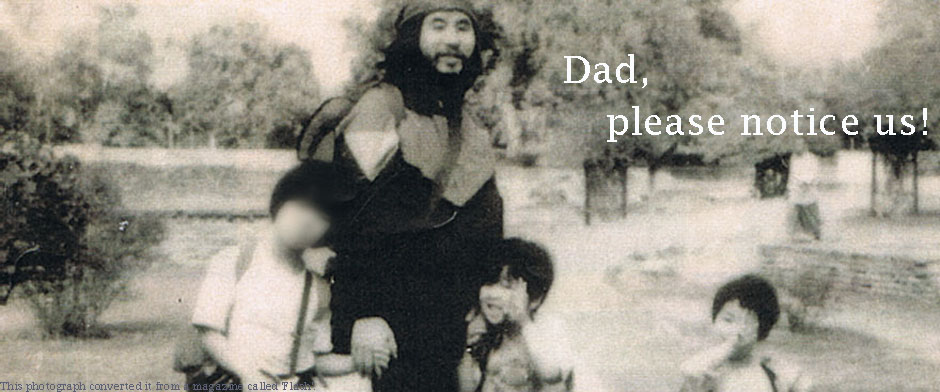Our father was arrested on May 16, 1995. Once arrested, the Court prohibits visitation by people except defense attorneys when there are accomplices in principle. Visitation was prohibited soon after our father's arrest, since there were multiple accomplices who were believed to be perpetrators in our father's case. All we could do as his family was to bring things in, and our father would request us to bring food, etc. and thanked us in the beginning.
The principle of presumption of innocence where one is considered as innocent until proven guilty in trial does not function in Japan, and our father was treated as a key plotter of a violent crime by the mass media, etc. even at the time of arrest when nothing was clarified. Therefore, no one wanted to become his defense attorney upon his arrest, and after some twists and turns, 12 defense attorneys were appointed by utilizing the public defender system for the first court where the government appoints attorneys.
Our father's first trial was held at the Tokyo District Court on April 24, 1996. The Japanese courts essentially adopt the principle of a three-court trial process. A trial is held at a district court as the first court, a high court as the second court and the Supreme Court as the third court in many cases.
Around October to November of the same year, defense attorneys cross-examined a former disciple of our father named Yoshihiro Inoue, who was believed to be one of the accomplices. Mr. Inoue was almost the only witness who supported the prosecutors' argument claiming that our father instructed in the limousine to release sarin at subway stations (so-called "limousine plotting") in those days. He subsequently withdrew his testimony at the trial of accomplices, not our father's; however our father's guilty verdict has not been overturned.
Our father's mental aberration obviously began around this time. He started to say irrelevant things that did not make sense in the courtroom, i.e., so-called "irregular speech," and delivery of goods stopped being accepted in early 1997. It is probably because he was already in the condition of not being able to indicate his intention around this time, as he would have had to indicate his intention to receive delivered goods. Defense attorneys lost visitation privileges around the same time. We did not know anything in those days, and just assumed that our father was acting to be ill in order to establish an advantageous position with his trial. It was difficult for us to admit our gentle father whom we respected was mentally ill, and to know that judges who saw our father closer than ourselves after his arrest as well as mass media treated him as malingering. The trial at the first court concluded on February 27, 2004, and the death sentence was received.
12 public defenders appointed for our father for the first court appealed on the same day on his behalf as he was even unable to speak, and all of them resigned. Within the same day, Attorney Matsui was appointed as the defense attorney for the appeal trial, who had been watching over our family since 2000.
It was around this time when we began to be involved in our father's trial.
